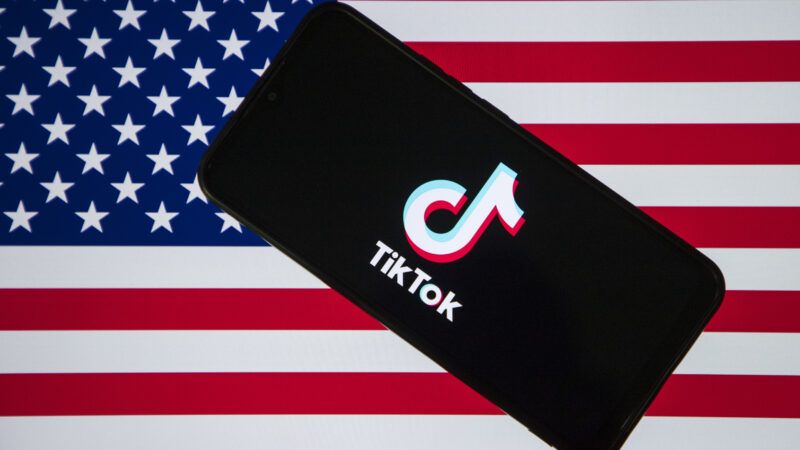Supreme Court To Hear TikTok Ban Case
The ban violates the First and Fifth Amendments. Strike it down.

The Supreme Court has granted TikTok's request for a hearing on the Protecting Americans from Foreign Adversary Controlled Applications (PAFACA) Act. The act bans TikTok in American markets unless the app's owner, ByteDance (which is 1 percent owned by the Chinese government), divests from the app by January 19. The Supreme Court will hear the case on January 10 to determine whether PAFACA serves a national interest compelling enough that it merits undermining the First and Fifth Amendments.
PAFACA was signed into law on April 24 to address concerns that ByteDance was illegally accessing American users' data. TikTok challenged the law in the U.S. Court of Appeals for the District of Columbia Circuit two weeks later.
TikTok's complaint comprises four major challenges to the law: First, it alleges that PAFACA violates the First Amendment by imposing "content- and viewpoint-based restriction[s] on protected speech." This claim is supported, at least in part, by a report from the House Energy and Commerce Committee, which stated that TikTok "can be used" by adversaries to "push misinformation, disinformation, and propaganda on the American public." Although the Court of Appeals acknowledged that TikTok has standing under the First Amendment, Senior Judge Douglas Ginsburg held in his opinion that the law "survive[s] constitutional scrutiny."
Second, TikTok claims the law is an unconstitutional bill of attainder, defined as "legislative punishment, of any form or severity, of specifically designated persons or groups," as established in United States v. Brown (1965). Third, TikTok says the law singles out the company, and thus violates the Fifth Amendment's Due Process Clause, by automatically labeling any app run by ByteDance as a foreign adversary-controlled application. Apps run by other companies, such as the Chinese messaging app WeChat, are only so defined after the president has determined the firm to be a significant threat to U.S. security.
Finally, TikTok alleges that the law violates the Fifth Amendment's Takings Clause, which holds that private property cannot be "taken for public use, without just compensation." However, Ginsburg concluded that "TikTok has not been subjected to a complete deprivation of economic value" because TikTok can sell its codebase, user base, brand value, goodwill, and property. Though forcing a sale is nominally better than seizing TikTok's assets without payment, the mandatory divestiture still constitutes a substantive violation of property rights.
Jennifer Huddleston, senior fellow in technology policy at the Cato Institute, tells Reason that legislators' primary national security concern pertains to the Chinese Communist Party's ability to invoke the Chinese National Security Law to circuitously acquire American TikTok user data through its "special management share" of ByteDance. If there is a genuine national security threat that is exacerbated by Americans' use of TikTok, then legislators have a responsibility to clarify precisely what this is instead of vaguely gesturing to "an active national security threat," as Joe Lancaster has argued in Reason.
Huddleston says the law to ban TikTok wasn't just solely driven by concerns over American data privacy, but also by worries about Chinese propaganda. But one man's—or country's—propaganda can just as easily be an American citizen's protected political speech.
The Supreme Court may soon decide the fate of TikTok. Though banning the app could be politically expedient in the short term, it would come at the cost of weakening the First and Fifth Amendments for all Americans.


Show Comments (36)